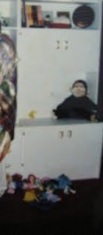In a state of perpetual mourning, withdrawn from overt expression. The memories of my dear, departed Mamoo Jan flash in a retinue of threaded existence. I remember the buttery aroma of your hand cooked food, as I strain to achieve a similar result each time I cook, failing implacably, which in turn preserves the moiety of remembrance of a day in the past whereupon I recall you gathering yourself to the kitchen and to the hall, frowning upon intrusion, aiming to cook the days meal all by yourself. The aromatic flavor engrossed in my mind serves as one of my dearest memories of childhood past.
I recall when the family would welcome you at the airport, you’d emerge from the gates, effortlessly carrying baggage of all sorts, donning an appearance of, in words replenished, a hippie. Your hair unkempt of streaking grey and white, with a settled beaded band, yellow tinted spectacles and a distant look of careful contemplation and control. Which at times you would adorn with a guitar in your hands to my amusement, which I recall you exclaimed you played exclusively in your solitude upon our insistence to serenade us with a tune or two.
It ached me to see you strenuously working on Grandma’s house, alone, year after year exerting all mental and physical faculties on a ruin with which you expected a broken family might, in the near future, reconcile and begin to live together as had happened in the past.
You would many a times clasp my and my sisters face in both hands, plant a kiss on either cheek and warmly whisper to us how everything will be alright, how our dad never left our mom, how their differences were temporary and soon we would all harmonise as one family unit.
With such sempiternal, warm affections, the eventuality of your personal tragedy never bore a burden on others. Rather, you took it upon yourself and your heaving conscious to sustain the losses, faltering at times but with excess which poured out as ill humor that those around you feared.
During the course of past week, the similarities in your being to mine surfaced, chiefly that of solitude. Perhaps we shared such a bond in my childhood which attached your memories to mine, making you undoubtedly my favourite Mamoo. There always lay a magical demeanour about you which persists in my memories of you.


I know not how to end this as my mind journeys back to the bucket load of toys you would send for me, in particular, a big brown bear that was part backpack part teddy. And as I wait at this traffic signal, a pick up van pulls over adjacent to my right, bearing a poster for a daycare centre with a toddler cuddling a teddy bear much similar to the one belonging to my childhood.

